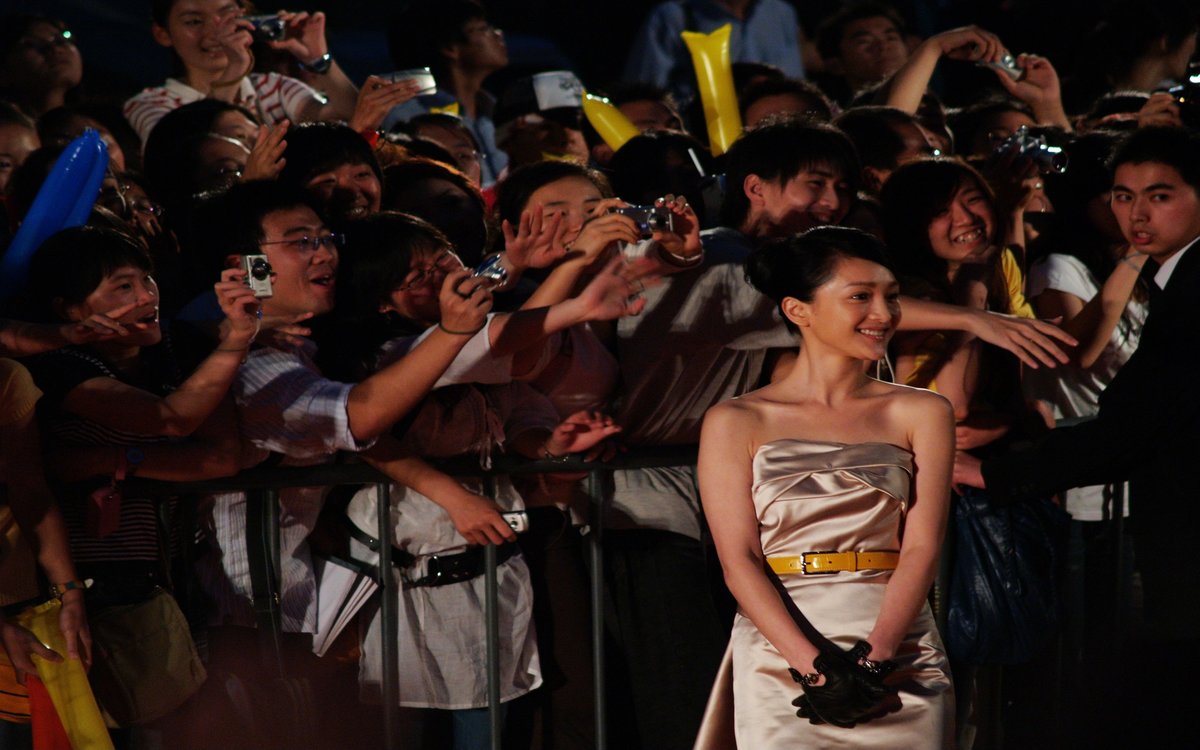- China’s state broadcaster said actor and actress compensation above RMB 25 million as excessive.
- Film regulators say they will direct actors’ guilds to establish self-discipline on pay for talent.
- Media criticize high pay as a root cause for poor film and TV quality.
China’s media watchdog says it will crack down on the high fees being paid to the country’s top celebrities after the country’s state broadcaster found some were receiving up to RMB 100 million yuan (US$15 million) for a single movie or TV series.
A China Central Television (CCTV) report on Friday claimed the minimum payment for some high-profile actors and actresses in China has reached RMB 25 million ($3.5 million), with some receiving upwards of RMB 100 million ($15 million).
The report singled out Ruyi’s Royal Love In The Palace (如懿传), a TV series produced by New Classic Media (新丽传媒) which follows a love story set in the Qing Dynasty, for overpaying its leading actors Wallace Huo (霍建华) and Zhou Xun (周迅) to the tune of RMB 150 million ($22.5 million) combined.
New Classic Media produced 2014’s feature films Jianbing Man (煎饼侠) and Goodbye Mr.Loser (夏洛特烦恼) and is also producing veteran director Chen Kaige’s new movie Legend of the Cat Demon (妖猫传).
The international rights to Ruyi’s Royal Love have been sold to Fox Networks Group, according to New Classic Media’s official Weibo account.
On Friday, the State Administration of Press, Publication, Radio, Film and Television (SAPPRFT) weighed in, saying it would direct actors’ guilds and film and television production companies to formulate self-discipline on the appropriate remuneration of actors.
On Sunday, Beijing Maite Media CEO,Chen Lizhi, (陈砺志) took to Chinese social media to defend Cui and Zhou’s renumeration. Chen, who co-produced Snow Girl and the Dark Crystal (钟馗伏魔:雪妖魔灵), said CCTV was right to shine a light on the issue, but singling out Ruyi’s Royal Love didn’t make sense.
“It looks like they’ve received a high payment for the show, but Ruyi’s Royal Love In The Palace has 90 seasons!” the entertainment executive posted on Weibo.
Chinese media has been saturated with reports bemoaning the parlous state of the country’s film industry and the effect of poor quality movies on box-office earnings. In early August, the People’s Daily saw fit to launch a broadside against the film industry, blaming the sector’s dramatic reversal in fortunes on “terrible” and “mediocre” films.
Chinese Media Blames Spate of Poor Quality Films for Flagging Box Office
Friday’s CCTV report stressed that high payouts to actors has not been translating into high-quality films. Ice Fantasy (幻城), which stars William Feng (冯绍峰), as well as Jiu Xian Qingyunzhi (诛仙青云志), Jiu Zhou Tiankong Cheng (九州·天空城), and The Mystic Nine were cited as examples of TV shows with high-profile and highly-paid actors that have been poorly received by viewers.
The report quoted a producer of Descendants of the Sun (太阳的后裔), a South Korean television series which is hugely popular in China, who claimed that Korean actors only account for 20 to 30 percent of production costs compared to China, where actors took 50 to 80 percent.
Remuneration for Hollywood actors only accounts for 10 percent to 30 percent of production costs, Olga Rodriguez-Aguirre, the national director of theatrical contracts at the American Federation of Television and Radio Artists, told CCTV.
Lu Di, a professor at the School of Journalism and Communication at Peking University, told Global Times that the government should impose more taxes on actors’ payment and set up a remuneration ceiling.
“A good film or TV series is the result of teamwork. If the majority of production funding has already gone to performers, other team members cannot be paid properly, which makes them unable to produce good-quality films and TV series,” said Lu.






